A NIGHT RIDER´S LAMENT FOR OLD FRIEND
A NIGHT RIDER´S LAMENT FOR OLD FRIEND
by Norman Warwick
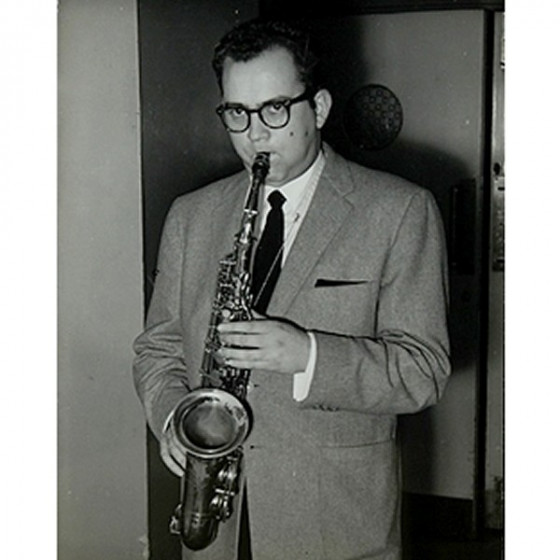
Leonard Niehaus was an American alto saxophonist, composer and arranger on the West Coast jazz scene. He played with the Stan Kenton Orchestra and served as one of Kenton’s primary staff arrangers. He also played with Ray Vasquez and trombonist and Vocalist, Phil Carreon and other jazz bands on the U.S. West Coast.
To those of us who knew the young Rowdy Yates on Rawhide, though, it might seem strange that he and Niehaus should one day find themselves together, riding happy trails.
The title song for the western series Rawhide, by the way, was boomed out in recording by Frankie Lane and became a huge hit.
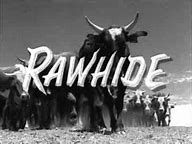
Rawhide was an American Western TV series starring Eric Fleming and Clint Eastwood. The show aired for eight seasons on the CBS network on Friday nights, from January 9, 1959, to September 3, 1965, before moving to Tuesday nights from September 14, 1965, until January 4, 1966, with a total of 217 black-and-white episodes. The series was produced and sometimes directed by Charles Marquis Warren, who also produced early episodes of Gunsmoke.
Spanning seven and a half years, Rawhide was the sixth-longest-running American television Western, exceeded only by eight years of Wagon Train, nine years of The Virginian, fourteen years of Bonanza, eighteen years of Death Valley Days, and twenty years of Gunsmoke.
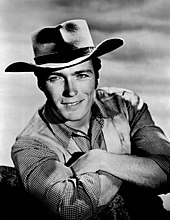
Set in the 1860s, Rawhide portrayed the challenges faced by the drovers of a cattle drive. Most episodes were introduced with a monologue by Gil Favor (portrayed by Eric Fleming), trail boss. In a typical Rawhide story, the drovers came upon people on the trail and involved themselves in other people’s affairs, usually encountering various and sundry corrupt individuals. Many times, one or more of the crew ventured into a nearby town and encountered some trouble from crooked townspeople or lawless politicians from which they needed to be rescued. Rowdy Yates (Clint Eastwood) was young and at times impetuous in the earliest episodes, and Favor had to keep a tight rein on him.
The man now more properly known as actor, director, and jazz aficionado Clint Eastwood, was formerly Rowdy Yates, that young cowboy on the cattle drives of one of tv´s greatest westerns,.
Mr. Eastwood recently remembered his decades-long arranging and compositional partner Lennie Niehaus (6/1/29 – 5/28/20) when speaking to Michael J West of Jazz Times magazine.
He recalled:
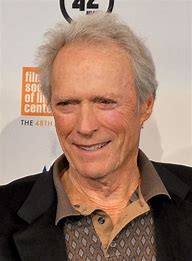
´A few weeks ago, I was filming Cry Macho in New Mexico, and I got the word that he had passed on. I hadn’t seen him in a few years. We go back to the Army at Fort Ord in the early fifties.
In the evenings, I used to bartend at a junior NCO club. He was in the army, but in the music department. He used to come in with a trio and play in this room with no stage or anything. They just played in the corner, kind of. That’s how I got to know him. I listened to him a lot, and I heard some of his records after we got out of the service and went our separate ways.
Later on in the years, composer/arranger Jerry Fielding did a couple of scores for us. Lennie was in the band. I said, “Is that the same Lennie that I knew in the Army?” so we got reacquainted. I listened to some of his records on jazz programs and felt how much he had progressed since we were in the service together.
Jerry used to use him all the time. When Jerry passed away in 1980, I just moved over to Lennie, and I used him for quite a few films after that. I don’t have enough memory to remember exactly why or what people were available. All I know is Lennie did a good job. For quite a few years there, I used him exclusively.
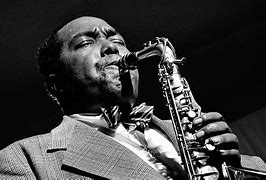
Before Nat King Cole’s daughter started doing the blending with her father on some of his music, we were doing it with Bird. When I first brought it to Lennie, I said, “I want to do this picture, and I have this script.” He said, “Who would you get to play [the music of] Bird?” and I said, “We’re going to get Bird to do it.” So I travelled to France and met with Bird’s former wife and got all the material I could get from her and other various materials.
When they started blending it in, Charles McPherson did a couple of little things when there was absolutely no track, but most of the stuff was Bird’s tracks because his wife had gone to all these concerts, put a standing mic up there, and recorded Bird’s solos. The trouble was, as soon as he stopped soloing and the band went off, she turned the [machine] off to save tape. There were some wonderful solos with the Woody Herman Orchestra and Stan Kenton and various things he had done, but they only had his solo and not the rest of the orchestration. Lennie filled in the orchestration, took the Bird solo, and blended that in. We did the picture on Charlie Parker with Charlie Parker himself playing.

In 1992, when I made Unforgiven, I [worked] with him on that. I wrote a theme on the way to the location, and I said, “I’ve got this theme. Why don’t you orchestrate this?” I wanted a lonely guitar feeling, and I wanted Laurindo Almeida to do it. There was something about the way he played that was kind of uncomplicated, but he always had a good feel. I just felt he would do this one tune. I said, “You arrange it; I’ll give you half the tune.”
We had a good relationship. He was always reliable and malleable. The musicians loved him, and I loved him. He was a good player, but he could also get you what you wanted. He understood what you were trying to do to enhance the movie. It was very smooth sailing.
Lennie was not a real extroverted kind of person. Most of his expression was through playing. But he could play pretty damn good. Those records he did since we were in the Army were quite intricate and a lot of fun. He didn’t tout himself or anything; he was a humble guy. He wasn’t self-promotional in any way. If you were just talking in general, you’d think he worked behind the counter at a bank or something. But if you started talking music, he could speak right up.´
Sadly, there are plenty of great artists who are unable to, or least very reluctant to, discuss their art form and its methodologies. So I loudly applaud Mr. Eastwood for his eloquence and obvious love of his subject and the warmth he shows to his late friend.
Reading Mr. Eastwood´s piece somehow reminds me, in fact, of why I create this daily blog.
There is no greater pleasure in life for me than to listen to an expert speak enthusiastically about his art and it seems to me that many of those artists who speak profoundly about their art form are also those who keep the most schtum on other subjects.
Primary source for this article: interview of Clint Eastwood by Michael J West for Jazz Times magazine. Check them out via search engine.

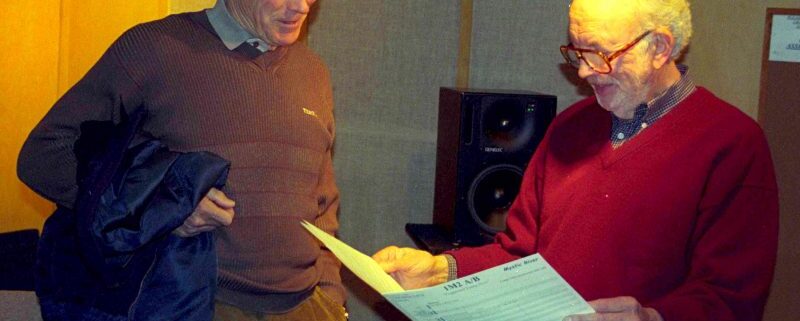


Leave a Reply
Want to join the discussion?Feel free to contribute!